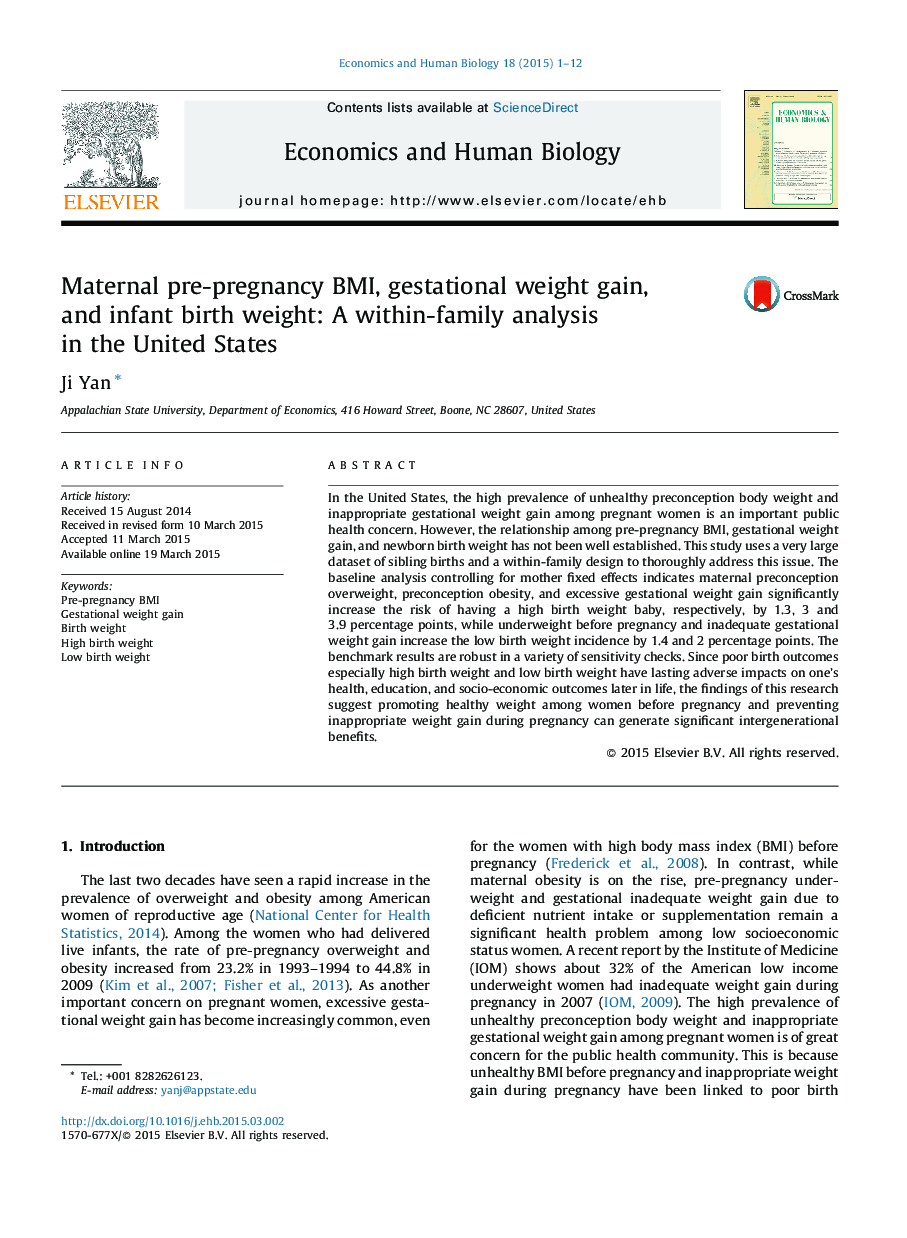| Article ID | Journal | Published Year | Pages | File Type |
|---|---|---|---|---|
| 5056969 | Economics & Human Biology | 2015 | 12 Pages |
â¢Almost half of mothers were obese, overweight, or underweight before pregnancy.â¢Seventy-one percent of mothers had excessive or inadequate weight gain in pregnancy.â¢Obesity and excessive gestational weight gain increase the high birth weight risk.â¢Underweight and inadequate weight gain in pregnancy raise the low birth weight risk.â¢Maintaining a healthy weight before and during pregnancy should be promoted.
In the United States, the high prevalence of unhealthy preconception body weight and inappropriate gestational weight gain among pregnant women is an important public health concern. However, the relationship among pre-pregnancy BMI, gestational weight gain, and newborn birth weight has not been well established. This study uses a very large dataset of sibling births and a within-family design to thoroughly address this issue. The baseline analysis controlling for mother fixed effects indicates maternal preconception overweight, preconception obesity, and excessive gestational weight gain significantly increase the risk of having a high birth weight baby, respectively, by 1.3, 3 and 3.9 percentage points, while underweight before pregnancy and inadequate gestational weight gain increase the low birth weight incidence by 1.4 and 2 percentage points. The benchmark results are robust in a variety of sensitivity checks. Since poor birth outcomes especially high birth weight and low birth weight have lasting adverse impacts on one's health, education, and socio-economic outcomes later in life, the findings of this research suggest promoting healthy weight among women before pregnancy and preventing inappropriate weight gain during pregnancy can generate significant intergenerational benefits.
